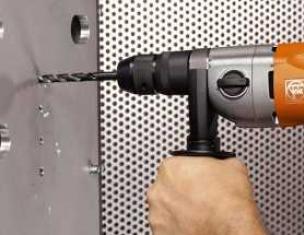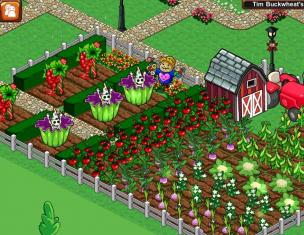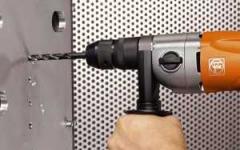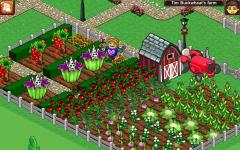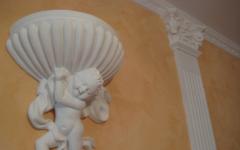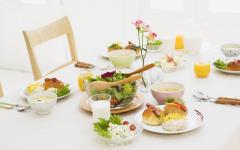Hygiene training and parenting in educational institutions it consists of classroom, out-of-class and out-of-school work carried out by teachers of all subjects, medical personnel of institutions, leaders of circles, clubs, associations. Class work is conducted in accordance with educational standards, educational programs, guidelines. Mostly hygiene issues are covered in the process of teaching natural history, the basics of life safety, technology, physical education, natural science, biology (educational institutions), as well as labor protection, safety (educational institutions with vocational training). The subject of classes is determined by the curriculum.
Extracurricular and extracurricular activities includes the organization of sanitary posts and brigades, classes in electives and circles "Young Medic", conducting conversations, lectures by medical personnel, individual consultations, watching movies and videos. However, more effective is the organization of gaming (especially in the lower grades) and competitive forms of education and upbringing: quizzes, olympiads, theatrical performances, shows, competitions with the mandatory participation of high school students in programs for younger students, the release of health bulletins, leaflets. For high school students in a good way training and education is the organization of conferences, debates, round tables. A powerful means of hygienic education is the participation of schoolchildren in the work of clubs, public associations on hygiene and environmental topics, for example, such as Antiweight (for those who are overweight), the Green Movement, etc.
Don't buy anything high quality or expensive because the clothes become useless, the same goes for shoes. Shoes, however, should be comfortable because you will be standing for a long time. In some places where you will find these items at a very good price.
Hygiene and epidemiology
Ask your classmates at school if they know about the place they are hiring. There is always someone coming back to Brazil or going on vacation who vacates a job, someone who can give you a link, etc. Competitiveness: During periods of the year when jobs drop due to the low season, you need to be more assertive. If you can't get anything downtown try shopping centers in neighborhoods that are not so central but you have easy access by bus or train.
To test the effectiveness of hygienic education and upbringing, you can use performance data in disciplines where sections of hygiene, control, testing and questioning are taught, however, one cannot refuse to observe (especially in the lower grades) the formation of hygienic skills and abilities.
An essential component of hygienic education is personal hygiene. Personal hygiene is the most important means of an active attitude of a person to his health. A teenager should be guided not only by the elementary rules of individual hygiene, but also have the necessary skills in the field of mental hygiene and learn certain norms of behavior, mode of action, forms of treatment accepted in a civilized society and, ultimately, “working” for a healthy lifestyle. Interesting in this regard is the statement of M.V. Lomonosov, who wrote: “Cleanliness should be observed at the table, the contents of books, bedding, dresses. Who appearance behaves disgustingly, he shows not only laziness, but also vile morals.
By leaving the route where everyone looks, you stand a better chance. You must have had a student textbook delivered to you before you boarded. There you will find tips for finding a job. Several establishments put up posters in the window or on the counter saying there are vacancies.
On Wednesdays and Saturdays he classified the work in the papers. In the cafe you have access to daily newspapers. Of course, if you want to take it home, you need to buy it, but you can go to a cafe and check the newspaper, write down the works you are interested in, etc. MacDonald and Gloria Jeans have newspapers that customers read.
Hygienic education of children and adolescents is a complex and multifaceted activity. Various channels of mass communication are also important in it, the use of which must be intensified. Popularity of various forms of propaganda healthy lifestyle life in the first place is television and feature films. Lectures, conversations took the last places.
Go to hotels and ask how to apply for a job. Generally, hotels have a Human Resources section that you will be directed to and where you can fill out a form. If something shows up, they'll call you! Supermarkets are also a good place to work. Generally, you can apply online at the following sites.
If you are going to work in Australia, the first thing you need to do is get your tax file number. This is an important document for you; your employer will ask you to withhold tax from your paycheck and pay your pension. It takes about 28 days to prepare.
Various forms of presentation, new interesting genres, headings prepared on television (including cable), taking into account the specifics of the children's audience, can increase the significance of this information channel.
However, it is difficult to expect that the TV program "Health" will become a favorite program for most young people. In this regard, it is necessary to provide for the conduct of special cycles at all stages of teaching children and adolescents on various aspects of a healthy lifestyle of young people using modern audiovisual means.
Useful links from Australian websites
Translation of documents
Consulate General of Australia in Sao Paulo. Australian government scholarships. Australian Embassy in Brasilia. Department of Foreign Affairs and Business. Check online level at English language.National Library of Australia
Business directories, services, products, etc. Australian Customs Service. Australian newspapers online. List of hospitals in Australia. Australian Health Insurance Commission. Australian Tourism Commission.Australian Film Commission
Consulting on languages and translations. The term is also used at friends' parties and before birthdays, when it means you have to bring what you drink to the party.In the formation of a healthy lifestyle, children are the most promising age category. It is in childhood that the assimilation of the main volumes of information, the development of fundamental life stereotypes takes place. It is also significant that in children and adolescents the natural educational activity Therefore, the issues of forming a healthy lifestyle can be organically included in the educational process. Continuity is also needed at all stages of the formation of a healthy lifestyle for children and adolescents (family, school, secondary special and higher educational establishments, labor collectives, informal associations).
How to drive in Australia and how do traffic laws work?
A tourist can travel to Australia with a foreign driver's license valid for the same type of vehicle, always taking it with them. If the portfolio is not in English, a translation must be provided. An international driving license is not sufficient and must be accompanied by a valid driving license your country. For clarification, it is advisable to contact the state police upon arrival.
How is the Australian customs control?
Australians drive on the right side, like in England. Laws against drunk driving are tough. The driver and passengers must wear seat belts at all times. There are strict laws prohibiting or restricting access to drugs, steroids, weapons, firearms, and protected wildlife and derived products. All animals food products, plants and derivatives are subject to control and must be declared upon arrival. The penalties for violating these laws are severe.
Hygienic education of parents conducted mainly in the form of lectures and talks on parent meetings, individual interviews and consultations. It is also necessary to have popular scientific literature, memos, and recommendations for parents in the medical office.
The most relevant topics for working with parents are: "How to facilitate the adaptation of a first-grader to school", "Schoolchildren's daily routine", "Choice of profession and health", "Hygiene of sexual education", "Prevention bad habits”, “Protection of the neuropsychic health of schoolchildren”, “Physical education and health”.
If you are in doubt about any item of your luggage, ask for it and check with customs. Currency means legal notes and coins, but does not include travelers checks or other monetary instruments. Forms for currency transfers can be found at customs inspectors at ports or airports. This procedure is required by law and disrespect for it is considered a crime.
Products related to cigarette and tobacco. If you are over 18, you may carry up to 50 cigarettes or 50 grams of cigar or tobacco-related products. These products include gifts, souvenirs, cameras, electronic equipment, leather goods, concentrated perfumes, jewelry, watches and sporting goods.
Hygiene training of personnel carried out in several directions. Lectures, talks, individual consultations are organized for teachers. A mandatory form is attendance by medical personnel of lessons with their subsequent hygienic assessment and analysis with teachers, as well as speeches at pedagogical meetings. A selection of relevant literature for teachers and educators is also necessary. For technical personnel, the most rational is phased training with continuity.
Please be aware that if you exceed the limits set by the Australian Government, costs and fees will apply to all such items, not just marginal products. The Australian currency is decimal, with the Australian dollar as the base unit.
All international airports in Australia have currency exchange offices. The exchange of currency or traveler's checks is quick and easy at most banks. In general, the weather is pleasant, without extreme temperatures. There are two climate zones. The tropical zone in the north above the Tropic of Capricorn covers approximately 40% of Australia. The remaining areas are in the temperate zone. However, due to the size of Australia, there are variations. The temperate regions have four seasons, while the tropics have two.
The main topics of training with staff: “Sanitary rules for the arrangement and maintenance of premises and sites”, “Sanitary and hygienic requirements for the organization of self-service work for children”, “Personal hygiene of personnel”, “The most important measures for the prevention of infectious diseases”, “ Hygiene requirements to the organization of the pedagogical process”, “Organization of recreational activities for children with health problems”, “Personal hygiene of the student” (for teachers).
Australia's weather stations are the opposite of meteors in the Northern Hemisphere and equal to those in Brazil. Spring: September - December Summer: December - March Autumn: March - June Winter: June - September. Australia is a country to be visited at any time of the year. Summers in Western Australia, the Northern Territory and Queensland are hot. In the Great Barrier Reef area, it rains in January and February. North of Queensland and parts of the Northern Territory and Western Australia, roads can be flooded during the rainy season from January to March.
The ski season runs from June to October in New South Wales, Victoria and Tasmania. He should be guided only by the temperature chart and weather maps. In the tropics, light clothing can be worn all year round. In the temperate regions of the south, summers are warm to warm and light clothing can be worn during the day, but it's good to always have a jacket or sweater as the nights can be cooler. For southern winters, sweaters, a jacket or light coat, and warmer clothing are recommended. Australians dress informally, but for special occasions such as business meetings, theatres, and fine dining, men may need a suit jacket and tie or suit, while women may need more formal dress.
Employees of educational institutions are required to undergo hygiene training and pass a test (pass hygienic certification once every 2 years according to the established program). The sanitary doctor for the hygiene of children and adolescents has the right to suspend from work persons who do not know and do not comply with sanitary rules at work, before passing the test according to the established program on the basis of Article 36 (2) of the Law "On Sanitary and Epidemiological Welfare of the Population".
Most of the time they are worth light and comfortable clothing. If hot weather is predicted, the visitor should bring a sun hat, Sunglasses and lotion for protection from the sun and sunburn. A pair of sneakers or sandals is recommended to protect your feet when watching fish in the Barrier Reef's coral pools.
Banks are open from 9:30 to 04, Monday to Thursday and Friday from 9:30 to 25. In some states, certain banking services are available on Saturday mornings. Opening hours: from 9 to 17 from Monday to Friday. Post offices are open from 9 am to 5 pm Monday through Friday, and you can usually find stamps at the front desk of hotels, motels, and some retail outlets.
The part-time hygienic training program for employees includes the following main sections.
1. Health of the child and adolescent population, the conditions for its formation, indicators of the health status of the individual and the team.
2. Hygiene of the day regimen and the educational process.
3. Hygiene of physical education.
What are domestic carriers in Australia?
Late Night Visitation: On Thursdays only, malls and shops in general are open until 9pm. Australia's domestic and regional lines offer convenient and efficient services to all government capitals, inland cities and areas of tourist interest. The airfare is available to a foreign guest.
Airlines for domestic flights
Companies also provide favorable discounts.
How to live in Australia
Most high standards accommodation prepared for any budget. This is the Australian hospitality industry. There are luxury hotels and resorts, convenient travel establishments, apartments and hotels, farms and family houses. Whenever possible, reservations should be made in advance. In Australia, accommodation is categorized with a star rating based on amenities and location. Flat Service: Fully equipped apartments, one to three bedrooms with living room, fully equipped kitchen, laundry and bathrooms.4. Hygiene of labor training.
5. Nutritional hygiene of children and adolescents.
6. Hygienic requirements for the construction, reconstruction, improvement, maintenance and equipment of schools, gymnasiums, lyceums.
7. Hygienic requirements for educational furniture and equipment.
8. Hygienic education and upbringing. Fundamentals of the formation of a healthy lifestyle for children and adolescents.
How to rent a car in Australia?
Australia has a good network of well maintained roads and, for the more adventurous, some trails leading into the outback. Car rental is available at major air, rail, city and resort terminals. It is possible to rent upon arrival in the country, however it is recommended to book in advance. Rates vary by location, location, season, vehicle type and rental period. Cars are equipped with a full tank, and the tourist pays for the fuel used. In general, the rates are for unlimited miles in urban areas.
9. Medical and sanitary and epidemiological support for children and adolescents.
10. Responsibility of the administration of educational institutions for the implementation of the requirements sanitary norms and rules.
According to epidemiological indications, hygienic certification can be carried out more often. On this occasion, the Chief State Sanitary Doctor of the territory adopts an appropriate resolution, binding on everyone.
Brazilian dentist near the Gold Coast and Byron Bay
Most rental companies provide advice and provide guides and maps regarding the region in which the tourist is traveling. A list with the names of rental companies and their offices in Australia can be obtained from the companies themselves.
Brazilian dentist on the gold coast
Diving on the Great Barrier Reef. The main starting points for diving expeditions are the cities of Cairns and Townsville, located in the northeast of the country. The main attraction is the Great Barrier Reef, the so-called diving paradise in the world.II. Requirements for the sanitary maintenance of premises and disinfection measures
All rooms are cleaned twice a day with a wet method using detergents. Cleaning of premises is carried out with open transoms or windows. Particularly thorough cleaning of frequently polluted surfaces (door handles, cabinets, window sills, switches, hard furniture, etc.) and places where dust accumulates (floors near baseboards and under furniture, radiators, lighting fittings, ventilation grilles, etc.).
Wet cleaning in the bedrooms is carried out after night and daytime sleep, in group - after each meal.
There are dives for all skill levels, from those who can't dive to experienced wreck divers. The Great Barrier Reef This is the largest living formation on the planet, and the only thing that can be seen from space is described by astronauts on their missions. The best dives are located right outside the barrier, the so-called "Coral Sea". But for these trips, you must stay 4 to 6 days sleeping on board the dive ship to reach that distance. However, it is possible to dive into inland coral, the so-called "booms", partly similar to the "coral heads" found in Abrolos, Brazil.
Tables in group rooms washed with hot soapy water before and after each meal with a special rag, which is washed, dried and stored dry in a special labeled container with a lid. Chairs, changing tables, playpens and other equipment, as well as lining oilcloths, oilcloth bibs are wiped daily with hot water and soap.
Water for technical purposes (cleaning group rooms, toilets, etc.) should be taken only from a special tap. Waste water is drained into the toilet with its subsequent disinfection with one of the permitted drugs.
Carpets are vacuumed daily and brushed with a damp brush or beaten out in specially designated areas, then cleaned with a damp brush. Once a year they are subjected to dry cleaning.
In rooms where wildlife corners are equipped, they carry out daily wet cleaning, cleaning cages, feeders, replacing bedding, washing drinking bowls and changing water in them. Once every two weeks, cages, feeders, drinkers must be disinfected, followed by rinsing with running water and drying. After disinfection, clean bedding and food are placed in the cage.
Sanitary equipment is subject to disinfection regardless of the epidemiological situation. Toilet seats, cistern handles and door handles are cleaned with warm soapy water daily. The pots are washed after each use with kvachas and detergents. Bathtubs, sinks, toilet bowls are cleaned twice a day with kwachas or brushes using detergents and disinfectants. Cleaning equipment for the toilet (rags, buckets, brushes) is marked with a bright color and stored in the toilet room in a special closet. After use, all cleaning equipment is washed with hot water and detergents and dried.
Disinfectant solutions (in dark containers) and detergents are stored out of the reach of children.
General cleaning of all premises and equipment is carried out once a month with the use of detergents and disinfectants. Windows outside and inside are washed as they get dirty, but at least 2 times a year (in spring and autumn).
In the warm season, in order to prevent the entry of insects, windows and doors should be screened with metal mesh or synthetic materials with a mesh size of not more than 2-2.2 mm. Mechanical methods (adhesive tapes, flytraps) can be used to control flies indoors. Permitted chemical agents for combating flies are used in the prescribed manner.
Louvre grilles of exhaust ventilation systems must be open; they should be covered only when there is a sharp difference in the temperatures of indoor and outdoor air. As they get dirty, they are cleaned of dust.
Exhaust ventilation shafts are cleaned at least 2 times a year. All types of repair work are not allowed to be carried out during the operation of group cells.
Purchased toys (with the exception of soft stuffed ones) are washed for 15 minutes before entering the group. running water (temperature 37°) with soap and then dried in air. When washing rubber, polyurethane foam, latex foam, plastisol toys, it is necessary to wring them out thoroughly. Toys are washed daily at the end of the day, and in nursery groups - 2 times a day. Doll clothes are washed as they get dirty using baby soap and ironed.
Latex foam toys are processed according to the manufacturer's instructions. It is not allowed to organize rental and exchange points for games, toys and other equipment in the preschool educational institution. Reusable medical instruments are subject to disinfection in accordance with applicable normative documents Ministry of Health of Russia.
It is preferable to use sterile disposable instruments with subsequent disinfection and disposal.
Bed linen and towels are changed as they get dirty, but at least once a week. All linens are labelled. Bed linen, except for pillowcases, is marked at the foot edge. Each child must have three sets of linen, including towels for the face and feet, and two sets of mattress covers. Clean linen is delivered in bags and stored in cabinets.
Linen after use is folded into a special tank, a bucket with a lid, oilcloth, plastic or double-material bag. Dirty linen is delivered to the laundry room (or to a special room). Cloth bags are handed over for washing, oilcloth and plastic bags are treated with hot soapy or soda solution.
Bedding: mattresses, pillows, sleeping bags - should be aired directly in the bedrooms when open windows during each general cleaning, periodically take it out into the air. Once a year, bedding is dry-cleaned or processed in a disinfection chamber. Washcloths for washing children (the number of washcloths corresponds to the number of children in the group) after use are soaked in a disinfectant solution for 15 minutes, washed with running water, dried and stored in clean cloth bags.
As necessary, disinfestation and deratization should be carried out in the preschool educational institution.
Prevention of helminthiases (enterobiosis and hymenolepiasis)
For the prevention of enterobiasis and hymenolepiasis, measures are taken to improve the sources of invasion and prevent the transmission of the pathogen, hygienic education and training of medical and other attendants. Identification of infested contagious helminthiases should be carried out by a simultaneous examination of all children and all preschool staff once a year. For pinworm infestation, a three-fold examination of children and employees is carried out after 1-3 days; for dwarf tapeworm infestation - after 10-20 days.
All identified infested are registered in the journal "Infectious Diseases" and drug therapy is carried out by the medical staff of the preschool educational institution. With a single examination of children and employees and the identification of 20% or more infested with pinworms, all children and staff of the preschool educational institution are rehabilitated. At the same time, measures are being taken to identify sources of pinworm infection and their recovery in accordance with the procedure established by the Russian Ministry of Health.
In an unfavorable situation for contagious helminthiases, preventive measures are carried out both during the period of treatment of children and the next 3 days after its completion. In this case, it is necessary:
Daily 2 times (morning and evening) to carry out wet cleaning of the premises using a soap-soda solution;
Vacuum or treat with chamber disinfection (if it is impossible to irradiate with bactericidal lamps for 30 minutes at a distance of up to 25 cm) carpets, paths, Stuffed Toys and remove them before the completion of the final disinfestation;
Within 3 days, starting from the first day of treatment, vacuum the blankets, mattresses and pillows. Blankets and bed linen are not allowed to be shaken indoors;
In groups of round-the-clock stay, daily change or iron underwear, bed linen and towels with a hot iron;
The fingernails of children and staff should be cut short;
Supervise the observance of personal hygiene rules by children and staff.
For cooking, use electrical equipment (juicers, mixers, mashers, etc.) and electric stoves. In gasified areas, the installation of gas stoves is allowed. In rural preschools with a capacity of up to 50 places, it is allowed to use solid fuel stoves with a firebox that goes into separate room. In newly built and reconstructed institutions, it is not allowed to install stoves that run on coal, wood, solid fuel. The kitchen area is equipped with exhaust ventilation.
Instructions for the use of detergents and disinfectants must be brought to the attention of all employees using this product (taking into account the specific mode of treatment being carried out).
In pantry, washing tableware and kitchen utensils, as well as near all baths that are used for processing inventory, they post instructions on the mode of washing dishes and processing inventory, indicating the concentrations of detergents and disinfectants currently used, the rules for preparing working solutions.
Detergents and disinfectants are stored in a dry, well-ventilated area. The solutions are stored in dark glass containers with a well-fitting stopper, avoiding exposure to light and moisture, for no more than 5 days. For washing kitchen utensils, metal baths of the type VM-1, VM-2, VM-1A, VM-2A (at least 2 made of stainless steel, aluminum, duralumin, etc.) are used with hot and cold water supplied to them with the installation of mixers. The hot water temperature at the point of disassembly is at least 65°.
For technological, household purposes, hot water from the water heating system is not used.
At the point where the bath is connected to the sewer, there must be an air gap of at least 20 mm from the top of the intake funnel.
Cooking cauldrons, after being freed from food residues, are washed with hot water not lower than 40 ° C with the addition of detergents, rinsed with hot water using a hose with a shower head and dried upside down on lattice shelves, racks. Clean kitchen utensils are stored on racks at a height of at least 0.5 m from the floor.
Cutting boards and small wooden utensils: spatulas, stirrers, etc. - after washing in the first bath with hot water (50 ° C) with the addition of detergents, rinse with hot water with a temperature of at least 65 ° C in the second bath, pour over with boiling water, and then dried on metal lattice racks.
After washing, metal inventory is calcined in an oven; after use, meat grinders are disassembled, washed, doused with boiling water and dried thoroughly. Tableware and tea utensils are allocated for each group. It can be made of faience, porcelain (plates, saucers, cups), and cutlery (spoons, forks, knives) - stainless steel. It is not allowed to use dishes with chipped edges, cracks, chips, deformed, damaged enamel, plastic and aluminum cutlery.
The number of simultaneously used tableware and cutlery must correspond to the list of children in the group. Staff should have separate tableware.
Dishes are stored in the buffet.
Dishes and cutlery are washed in 2- or 3-hole bathtubs installed in the pantry of each group room.
Tableware after mechanical removal of food residues is washed with the addition of detergents (first bath) with a water temperature of at least 40 °, rinsed with hot running water at a temperature of at least 65 ° (second bath) using a flexible hose with a shower head and dried on special grates . The cups are washed with hot water using detergents in the first bath, rinsing with hot running water is carried out in the second bath and dried.
Cutlery after mechanical cleaning and washing with detergents (first bath) is rinsed with hot running water (second bath). Clean cutlery is stored in pre-washed metal cassettes in a vertical position with the handles up.
In the event of cases of infectious diseases, disinfection (disinfection) of dishes is carried out in the prescribed manner.
For disinfection of dishes, it is recommended to use a dry-heat cabinet, which is installed in each group cell. If it is not available, for disinfecting dishes in each group, you should have a container with a lid for soaking dishes in a disinfectant solution.
In nursery groups, the bottles after milk mixtures are washed with warm running water using a ruff and detergents, then sterilized in an autoclave at a temperature of 120 ° for 45 minutes or boiled in water for 15 minutes and stored in a labeled closed enamel container. Ruffs after use are washed with running water and boiled for 30 minutes, dried and stored dry.
After use, the nipples are washed, soaked in a 2% solution of baking soda for 15-20 minutes, then washed with water, boiled for 3 minutes in water and stored in a labeled container with a closed lid.
Work tables in the catering unit and tables in the group after each meal are washed with hot water and detergents with special rags.
Washcloths, brushes for washing dishes, rags for wiping tables in case of a complicated epidemiological situation are boiled for 15 minutes in water with the addition of soda ash or soaked in a disinfectant solution, then washed at the end of the day with detergent, rinsed, dried and stored in a special labeled container.
Food waste at the catering unit and in groups is collected in marked metal buckets with lids or pedal tanks, which are cleaned as they are filled to no more than 2/3 of the volume. Every day at the end of the day, buckets and tanks, regardless of their filling, are cleaned with hoses above the sewer drains, washed with a 2% solution of soda ash, and then rinsed with hot water and dried.
Cleaning is carried out daily in the premises of the catering unit: mopping, removing dust and cobwebs, wiping radiators, window sills; weekly, with the use of detergents, walls, lighting fittings are washed, windows are cleaned from dust and soot, etc. Must be done once a month general cleaning with subsequent disinfection of all premises, equipment and inventory.
2. Physical: Trapping. The mechanical method consists in the use of various traps, traps, mousetraps, tops, etc.
3. Biological: a) infection with an infection that is dangerous only for rodents; b) capture by domestic animals.
Hygienic requirements for the air environment or the microclimate in the premises where children are located are the temperature and relative humidity of the air. The air temperature in schools in classrooms and classrooms should be from +18 to +24 C. In the gym, workshops from +17 to +20 gr. C. In children's rooms preschool age not lower than 19 - 22gr.S. For temperature control study rooms and cabinets should be equipped with household thermometers. Premises with permanent residence of children should be regularly ventilated, namely in kindergartens in the absence of children, in schools after each lesson. Airing is a prerequisite for normalizing the microclimate and preventing infectious diseases in children's groups.
In addition, for the prevention of infectious diseases, it should be noted that there is no crowding and the observance of personal hygiene rules by both children and employees of institutions.
Sanitary rules provide for a number of requirements in the event of various infectious diseases, in which quarantine measures are taken. Each infection has its own quarantine period, depending on the incubation period. The main principles of quarantine measures are the isolation of sick children and the separation of contact persons (at school, this is the allocation of a separate class and catering in the canteen after visiting healthy children, in the garden - separate group cells that are isolated from each other, outdoor walks for children should be carried out separately from healthy groups of children). Carrying out disinfection measures is a mandatory component of quarantine. For preventive purposes, all heads of educational institutions are recommended to purchase bactericidal irradiators that work in the presence of children.
Children's staff must comply with the requirements sanitary regulations, observance of the rules of personal hygiene, passing medical examinations, including fluorographic examination, timely vaccination according to the National Immunization Schedule, including against influenza and persons under 35 against measles.
Parents whose children attend organized children's groups must provide timely certificates of the state of health of children if they are absent from the educational institution for more than 3 days, do not bring a sick child to the institution, monitor their health, and also undergo an annual fluorographic examination and medical examinations , observe the rules of personal hygiene, thereby showing a personal example to your child.
To date, the Russian Federation is developing an unfavorable situation for an infectious disease - for measles. Therefore, parents should not neglect preventive vaccinations.
Working hours of children's institutions in very coldy depends on the administration of these institutions. The heads of educational institutions with parents should carry out explanatory work on the suspension of training sessions at ambient temperature:
- - 25 degrees Celsius - for students from grades 1 to 4,
- - 28 degrees Celsius - for students from grades 1 to 9,
- - 30 degrees Celsius - for students from grades 1 to 11.



